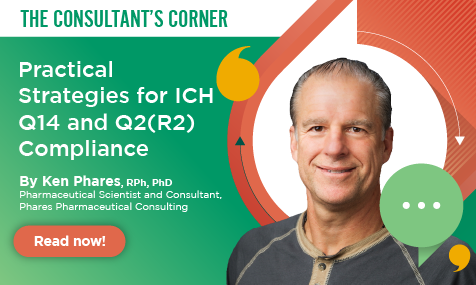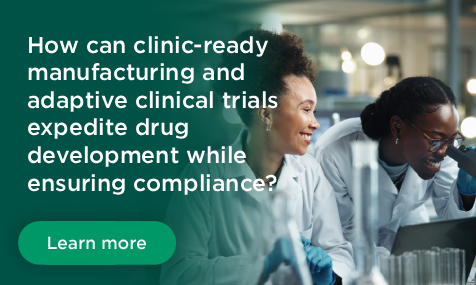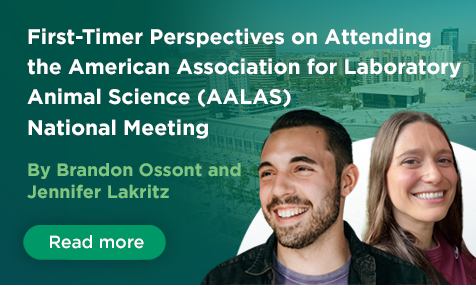Disrupting the CRO Model: Altasciences Participates in Documentary Series for 2024 Global Health Summit
Altasciences is leading the conversation on change in the drug development industry as part of a new documentary series for the 2024 Global Health Summit, hosted alongside the WHO’s 77th World Health Assembly in Geneva in May. The mini documentary explores transformation in the slow-to-change drug development industry. Leaders from Altasciences dive into the obstacles and inefficiencies of the traditional outsourcing relationship between CROs and drug sponsors, and how Altasciences has broken from tradition to address these challenges. CEO Chris Perkin is joined by Marie-Hélène Raigneau (Co-COO), Steve Mason (Co-COO), and Dr. Gaetano Morelli (Chief Medical Officer) to share their decades of insider insight and experience.
Watch Altasciences in "Flipping the Drug Development Industry on Its Head"
A Brief History of the CRO Market
Contract Research Organizations (CROs) first entered the pharma world in the 1970s. By the late 1980s, the cost of producing new drugs skyrocketed, prompting sponsors to outsource some of their drug development. From the 1990s to the mid-2000s, R&D spend for CRO services increased from 4% to an astonishing 50%, demonstrating pharma’s growing reliance on CROs. In addition to cost savings, CROs offered access to greater scientific knowledge and expertise, especially for regulatory requirements, as drug development became increasingly complex.
CROs have historically functioned as auxiliaries to pharma companies, conducting the work sponsors can’t do in-house. Based on each CRO’s expertise, sponsors have sought out partners to complete different aspects or phases of their R&D. In the film, Steve Mason, Co-chief Operating Officer, elaborates on this point: “Most CROs tend to focus on a specific phase or niche expertise—and that’s all they do. But they’re not invested in what happens to a drug when it passes to the next phase. That’s a challenge if you’re a sponsor, as you’ll have to work with many, many CROs before your drug reaches final regulatory approval.”
How Altasciences is Shaping Progress in Drug Development
In the documentary, Altasciences emerges as the alternative to the traditional outsourcing paradigm with its Proactive Drug Development approach. “We’re challenging the status quo and disrupting the CRO model,” states Steve in the film.
The company integrates early-phase drug development and provides sponsors with a comprehensive solution that centralizes preclinical research, clinical Phase I and II pharmacology studies, bioanalysis, formulation, and manufacturing. Scientific and operational teams from across services and phases collaborate to build and deploy the sponsor’s drug development roadmap, from discovery to clinical proof of concept, and beyond. This holistic visibility over a client’s drug development plan is unique to Altasciences and enables them to anticipate and mitigate potential roadblocks while proactively preparing for the next phase as the current phase is ongoing, for smoother transitions. As such, Altasciences simplifies the sponsors’ drug development experience, and resolves inefficiencies and challenges encountered with the traditional outsourcing model, while focusing on customer service. In doing so, Altasciences can safely accelerate a sponsor’s early drug development by up to 40%.
“Sponsors are moving from their traditional large CRO ‘safety zone’ and coming to Altasciences because they value the close attention, integrated approach, and safe reduction in drug development time that only we, as a one-stop solution, can provide,” explains Chris.
Drug development is a lengthy, rigorous process for a reason: it ensures drugs are safe and effective. Nevertheless, Altasciences presents a path to arriving at the end goal faster, without skipping any steps. This alternative to outsourcing drug development means bringing new, and better, medicine to more people around the world quicker—an outcome too life-changing to ignore.
Growth in the CRO Market
Growth in the CRO market is attributed to multiple factors, including larger pipelines in biotech, rising costs of in-house drug development, and the need for niche expertise. A McKinsey & Company report from 2022 also found that biotech companies often rely heavily on CROs to compensate for their relative lack of “infrastructure”. As of 2023, Contract Pharma reported that the CRO market was estimated to be worth USD 76.6 billion, with projections to reach USD 127.3 billion by 2028—a CAGR growth rate of 10.7% in just five years.
What is the Global Health Campaign?
The Global Health Campaign is a collection of interviews and documentaries (hosted and distributed by Reuters.com) produced in collaboration with international business leaders and specialists from across industries, asking major questions and providing guidance on how the private sector can help drive global health into a positive direction. It all culminates at the Global Health Summit in Geneva in May 2024, hosted alongside the World Health Assembly, where industry leaders and executives will gather from around the world to discuss the future of health as a global population.
The campaign highlights several organizations who are spearheading specific health initiatives, developing ground-breaking medicine, and embarking on ever-complex health technologies to tackle the challenges of both physical and mental health worldwide.
Altasciences is proud to participate in this year’s campaign.
Watch Altasciences’ documentary here.



